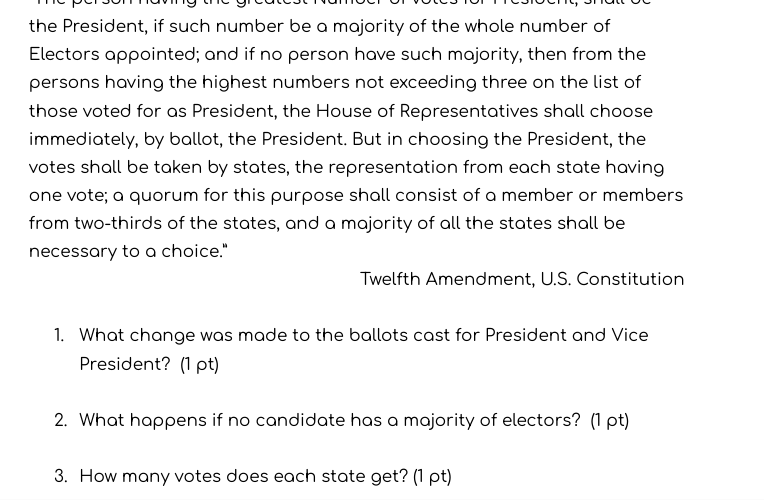What change was made to the ballots cast for President and Vice President? What happens if no candidate has a majority of electors? How many votes does each state get?

Understand the Problem
The question is asking for specific changes and regulations regarding the electoral process as outlined in the Twelfth Amendment of the U.S. Constitution. It seeks to clarify the changes in ballots, outcomes in the absence of majority electors, and voting representation for states.
Answer
Separate ballots for President and VP; the House decides if no majority; one vote per state.
The Twelfth Amendment changed the process so electors cast separate ballots for President and Vice President. If no candidate has a majority, the House of Representatives chooses the President. Each state gets one vote in this process.
Answer for screen readers
The Twelfth Amendment changed the process so electors cast separate ballots for President and Vice President. If no candidate has a majority, the House of Representatives chooses the President. Each state gets one vote in this process.
More Information
The Twelfth Amendment was ratified to fix issues from the election of 1800, where a tie occurred due to electors casting two votes for President.
Tips
Confusion often arises between the role of the Electoral College and the House of Representatives in contingent elections. Clarify each step.
Sources
- Constitutional Amendments – Amendment 12 - reaganlibrary.gov
- Twelfth Amendment - Election of President and Vice President - constitutioncenter.org
AI-generated content may contain errors. Please verify critical information